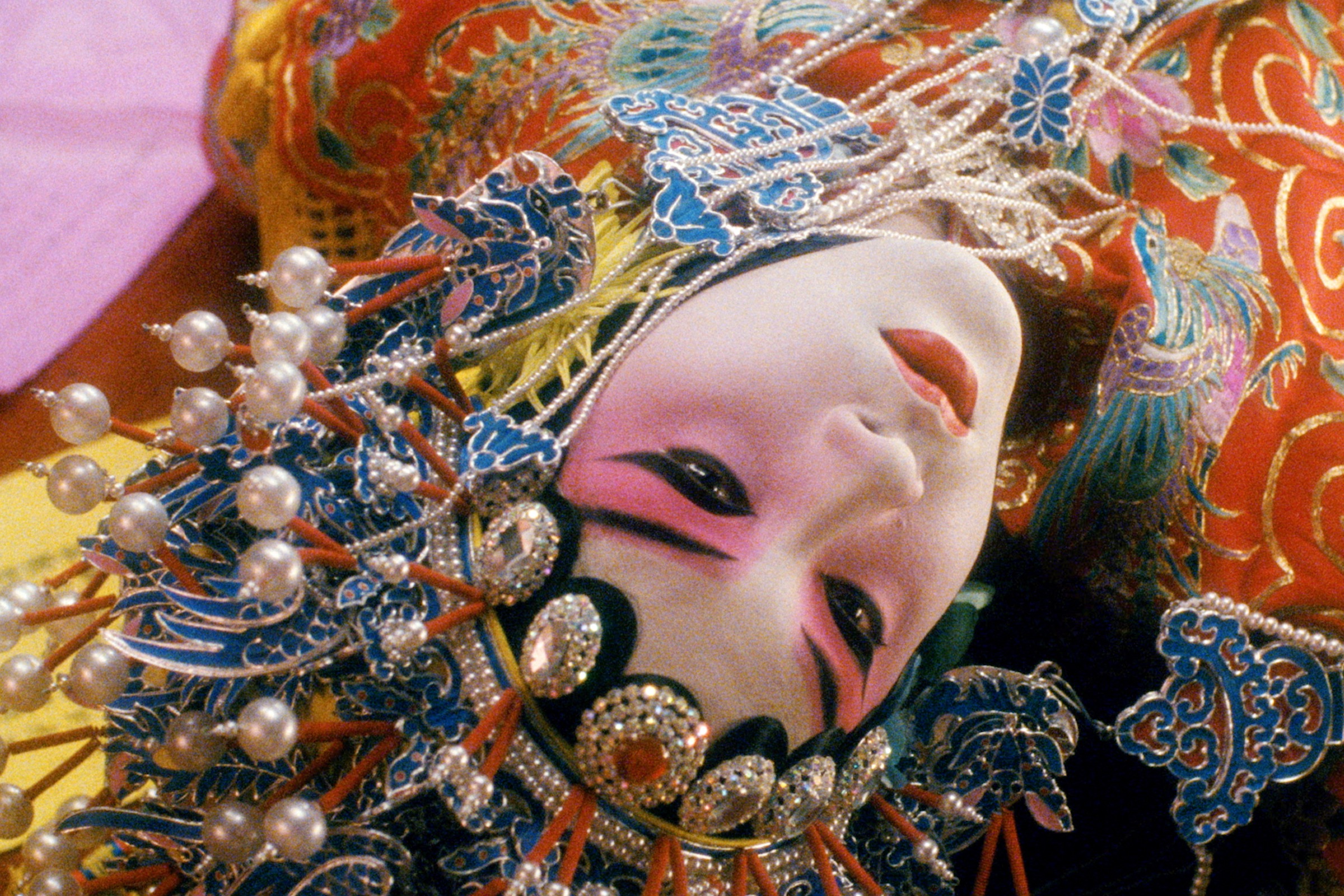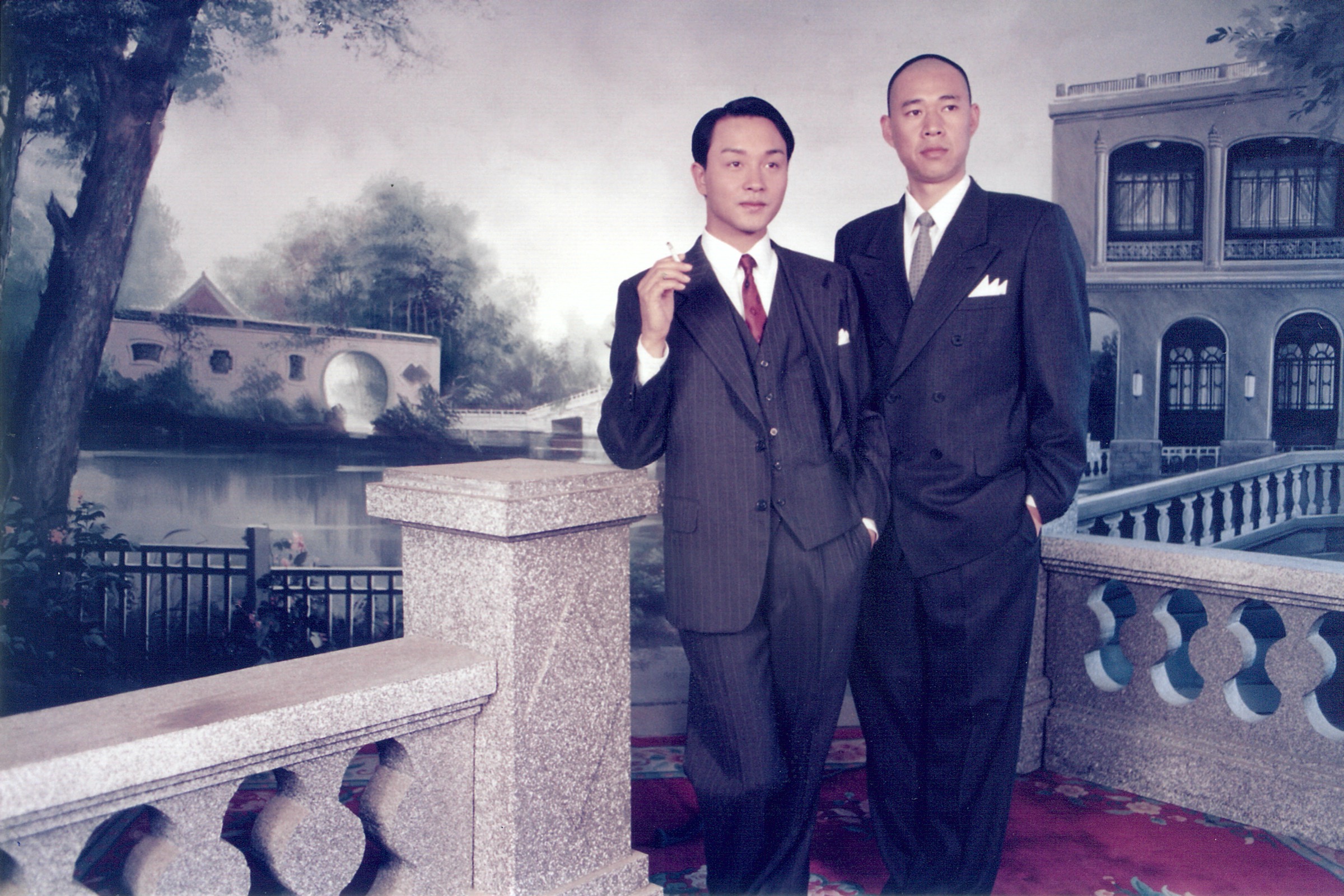‘Farewell My Concubine,’ 30 years on
This year marks the 30th anniversary of Chen Kaige’s timeless classic, arguably the best Chinese-language film of all time.

Farewell My Concubine (霸王别姬 bà wáng bié jī) is one of the most significant films in the history of Chinese cinema. It was successful upon its release in 1993, becoming the first — and so far only — Chinese-language film to win the Palme d’Or, the highest prize at the prestigious Cannes Film Festival.
Adapted from Hong Kong author Lilian Lee’s (李碧华 Lǐ Bìhuá) 1985 novel of the same title, the Hong Kong-Chinese co-production traces more than five decades of modern Chinese history through the perspective of two Beijing Opera performers and their ever-shifting relationship.
For those who haven’t seen the movie, you should stop right here and go watch it, or skip down to the next paragraph to avoid spoilers; for everyone else, here’s a brief synopsis of what happens: In 1924, an effeminate boy named Douzi joins a Beijing Opera troupe and starts years of physically demanding and abusive training. The older Shitou takes him under his wing, and the duo go on to become the most celebrated performers in all of Beijing. Their main act is the titular opera in which an all grown up Shitou, who now goes by Xiaolou (played by Zhāng Fēngyì 张丰毅), performs a defeated king, and Dieyi (adult Douzi, played by Leslie Cheung [张国荣 Zhāng Guóróng]) his consort, who commits suicide out of love and loyalty. Dieyi’s affections do not stop at the boundary of the stage, but remain unrequited, and Xiaolou marries Juxian, a cunning yet caring prostitute played by the empress of Chinese film, Gǒng Lì 巩俐.
Dieyi and Xiaolou’s life and art see myriad changes over the years, against the backdrop of the Japanese invasion of China, the Communists’ victory over the Nationalists, and the Cultural Revolution. Director Chén Kǎigē 陈凯歌 experienced the “10 years of chaos” firsthand, having been a Red Guard, a sent-down youth, and a PLA soldier. In 1978, he enrolled in the Beijing Film Academy and went on to become part of the Fifth Generation of Chinese filmmakers.
In May 1993, Farewell My Concubine won the Palme d’Or at Cannes. Chen returned to Hong Kong in the mood for celebration. “I want to point out that I am the first Chinese director to do this [win the Palme d’Or],” he told South China Morning Post at the airport. “It is very significant for me and it is a great step forward for Chinese cinema.”
But the celebration didn’t exactly go as planned in the mainland. Then-General Secretary Jiāng Zémín 江泽民 allegedly denounced the film after attending a private screening, placing its mainland release in jeopardy. With the imprimatur of Dèng Xiǎopíng 邓小平, Farewell was allowed to play just one night each in Shanghai and Beijing in late July, albeit only after some scenes dealing with homosexuality and the Cultural Revolution were removed.
In late August, however, the re-edited version was allowed to resume public screenings in Beijing. The decision was made to quell international outcry and avoid hampering China’s bid to host the 2000 Summer Olympics. Fast forward to today, and the original 171-minute version is readily available to stream for free on Bilibili.
In the film’s opening scene, Dieyi and Xiaolou are rehearsing in an empty arena and talk with a superintendent. When they mention they haven’t seen each other for 11 years and haven’t performed together for twice as long, the old superintendent asserts, “It’s all the Gang of Four’s fault,” referring to the Cultural Revolution. “Things are better now,” he adds. The duo look at each other silently and Xiaolou replies resignedly, “That’s right. Everything’s fine now.”
The protagonists’ feeling of being trapped by their surroundings and by history, of being tossed about by the tides of change, largely resonate to this day. Life in China from 2020 until late last year was defined by the pandemic at every level, from the virus itself to the lockdowns and mismanagement of an extremely restrictive zero-COVID policy. The opening scene echoes the many times people have said, “The pandemic was hard but everything’s fine now,” even as the public’s memory gets rewritten.
After the breakout success of Farewell, Chen went on to make more commercial — and, comparatively at least, mediocre — productions. For someone who began with the arthouse offering Yellow Earth (1984), the fact that his most recent movie was the propagandistic blockbuster The Battle at Lake Changjin (2021) a truly stunning career arc.
But thanks to Farewell, Chen occupies a special place in the hearts of many Chinese audiences. The film holds second place on the Top 250 films of all time list on media review platform Douban. “Just because of this [Farewell], I’m willing to forgive Chen Kaige for all his bad films. You only need to be great once,” reads one Douban comment with over 17,000 likes. Some are waiting with bated breath to see whether the director can come back to form. His semi-autobiographical drama Flowers from the Ashes, which he made in 2019, is finally getting a release in China on August 17. Perhaps his work outside China will regain critical acclaim: Chen’s scheduled to start production on Swan Song, a historical epic (!) based on the life of the 19th-century classical music composer Pyotr Tchaikovsky.
For others, it’s Leslie Cheung and his graceful performance that make Farewell so moving and memorable. While the Hong Kong queer icon was already a renowned actor in the Chinese-speaking world for his roles in the ’80s, such as in Rouge (1987), it was Farewell that made him internationally famous. When Cheung attended the Shanghai premiere of Farewell at the Grand Theatre in July 1993, the hallway of the cinema was reportedly so crowded with his fans that its windows shattered. This year also marks the 20th anniversary of Cheung’s death: the singer-actor suffered from depression and died by suicide on April 1, 2003, at the age of 46.
Farewell marks arguably the highest point in both Chen and Cheung’s careers. It’s also a trailblazing work in the Fifth Generation canon, setting the mold for the genre of the historical epic. Just a week after Farewell’s precarious premiere in Shanghai, Chen’s old classmate, Zhāng Yìmóu 张艺谋, started filming his own decades-spanning epic, To Live, which would go on to win the Grand Prix at Cannes the next year — and subsequently get banned at home, further mirroring the fate of its predecessor.
For some, these films mark the pinnacle of Chinese cinema. As one filmgoer put it, “To Live and Farewell My Concubine are not the beginning of Chinese cinema but the end.”
For its 30th anniversary, Farewell is getting a 4K restoration that will show in cinemas in Japan, France, and Hong Kong starting later this month. The U.S. release will likely come later in the year, perhaps during the New York Film Festival in October.








